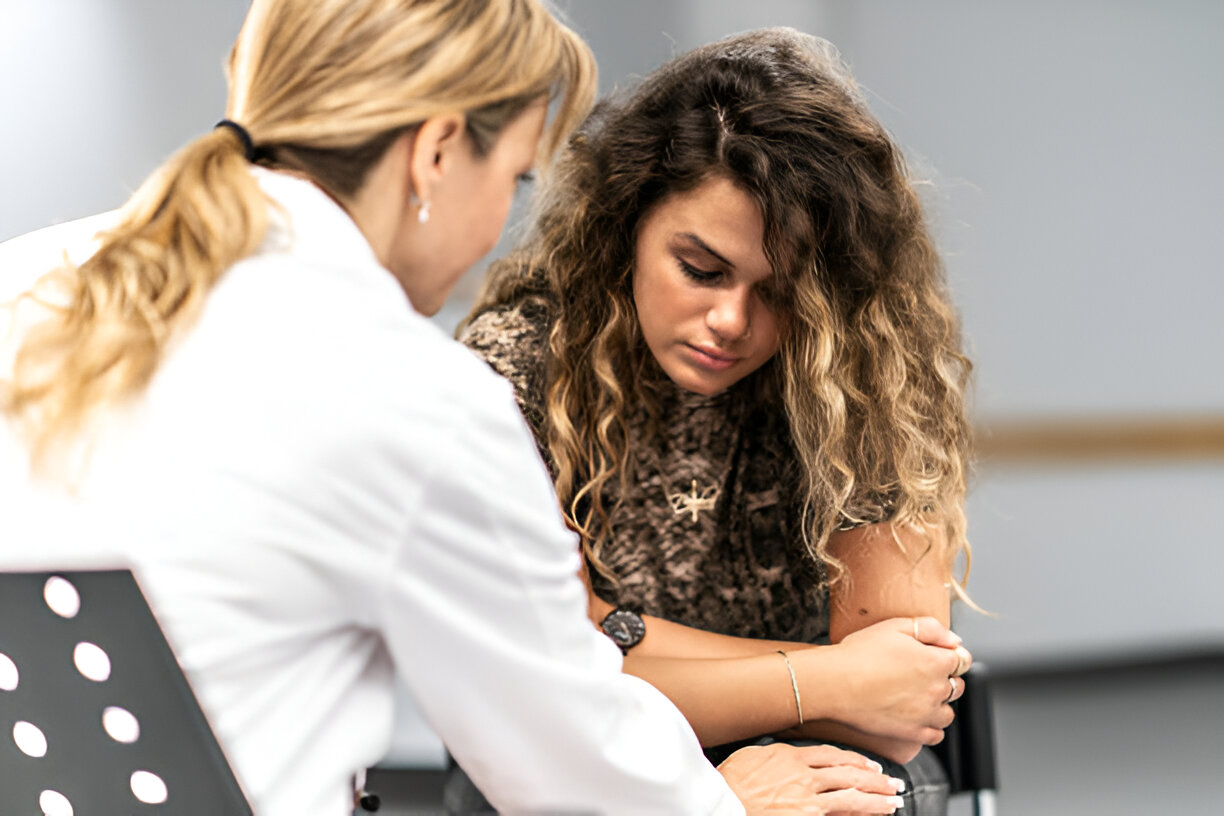Loving someone who’s struggling with addiction can feel like standing in two places at once. You’re trying to support them, but protect yourself. Show compassion, but not enable. Be patient, but still hope for change.
Maybe they’ve tried therapy. Maybe they’ve had some progress. Maybe they even promised, “This time it’s different.” But deep down, you’re wondering if the level of care is enough.
Sometimes, outpatient therapy isn’t the right fit—not because your partner isn’t trying, but because they need more structure, more support, or more stability.
That’s where a Partial Hospitalization Program (PHP) can help.
What Is a Partial Hospitalization Program?
A Partial Hospitalization Program—also called PHP—is a higher level of care than outpatient therapy, but it doesn’t require an overnight stay. Think of it as full-time treatment during the day, with the ability to return home in the evening.
At Midwest Recovery Center, PHP includes:
- Structured daily therapy sessions
- Group and individual counseling
- Medication management (if needed)
- Support for co-occurring mental health conditions
- Crisis prevention and emotional stabilization
For many couples, PHP offers relief—not just for the person struggling, but for the partner who’s been quietly holding the world together.
Why Outpatient Might Not Be Enough
Outpatient therapy can be incredibly helpful—but it often works best when someone is already stable, sober, and ready to self-manage. If your partner is actively using, cycling in and out of crises, or struggling with daily functioning, a once-a-week therapy session may not cut it.
Signs outpatient might not be enough:
- Frequent relapses despite effort or intention
- Increased emotional volatility or isolation
- Lack of follow-through with therapy or appointments
- Using even while in treatment
- You feeling more like a caregiver than a partner
This isn’t about blame. It’s about giving your partner the right level of support—so you’re not left holding the pieces alone.

How PHP Can Shift the Dynamic (For Both of You)
Choosing a Partial Hospitalization Program doesn’t mean giving up on your partner—it means helping them get closer to stability, healing, and accountability.
Here’s what can change:
- Daily structure replaces chaotic unpredictability
- Real-time support for emotional swings or triggers
- Peer accountability from others going through the same thing
- Space for you to rest, regroup, and reclaim your own wellbeing
PHP can also help reduce the emotional load partners often carry. You’re not their therapist. You’re not their crisis line. You’re their person—and you deserve support too.
Looking for a Partial Hospitalization Program in Maumee, Ohio or nearby? Midwest Recovery Center offers PHP options close to home that support both clients and families.
When to Start the Conversation
Bringing up a higher level of care can feel scary. You might worry it’ll push your partner away or trigger defensiveness.
But when done gently and from a place of love, it can open the door to something better—for both of you.
Consider saying:
“I’ve been thinking about how hard this has been—for you and for us. I wonder if something more structured, like a day treatment program, could give us both some breathing room.”
The goal isn’t to force. It’s to offer options. To name what’s not working. To remind them (and yourself) that there is help between ‘just trying harder’ and inpatient rehab.
What If They Say No?
If your partner isn’t ready, it’s okay to pause—but you don’t have to put your life on hold. You can still:
- Set boundaries that protect your emotional and physical space
- Explore support groups or therapy for yourself
- Get information so that when they are ready, you’re not scrambling
Sometimes the act of gathering information—about PHP, about options, about next steps—isn’t just for them. It’s for you. So you remember you’re not helpless. And you’re not alone.
FAQs About Partial Hospitalization Programs for Loved Ones
How long does a PHP program last?
Most programs run 5–6 days a week for several weeks. The exact length depends on your partner’s needs and progress.
Will they be home at night?
Yes. PHP is a day program, so clients return home in the evenings unless other living arrangements are part of their care plan.
Do I get to be involved in their treatment?
Yes. Family sessions, education, and partner support are available—because healing doesn’t happen in isolation.
What if they’ve tried treatment before and it “didn’t work”?
A different level of care can make all the difference. PHP offers more structure and intensity than outpatient, which may be what they needed all along.
Is this available near me?
Yes. We serve families across Toledo, Perrysburg, Maumee, and Oregon, Ohio.
You Don’t Have to Carry This Alone
You’ve already done so much. More than anyone probably sees. And we know that loving someone in addiction is both an act of courage and an emotional marathon.
PHP might not fix everything overnight—but it can be the first real shift. For your partner. For your relationship. And for your peace of mind.
Call (888) 657-0858 to explore Partial Hospitalization Program services in Toledo, Ohio. Let’s keep walking this road together.


























